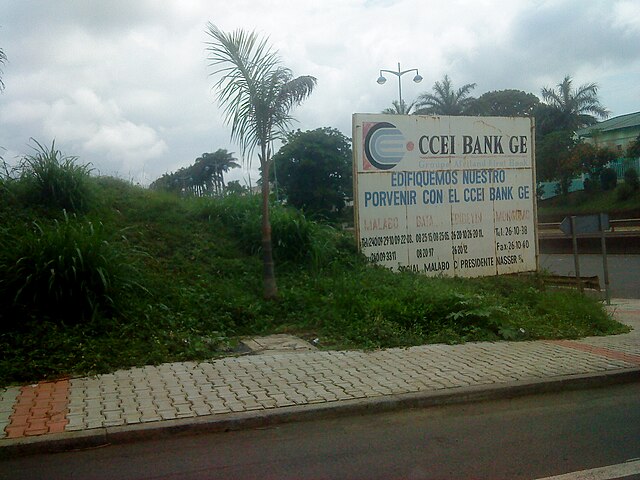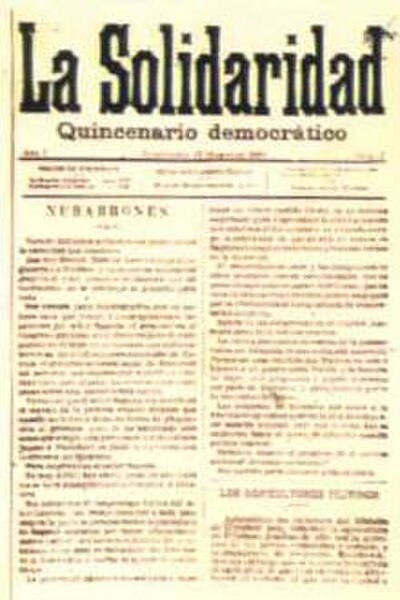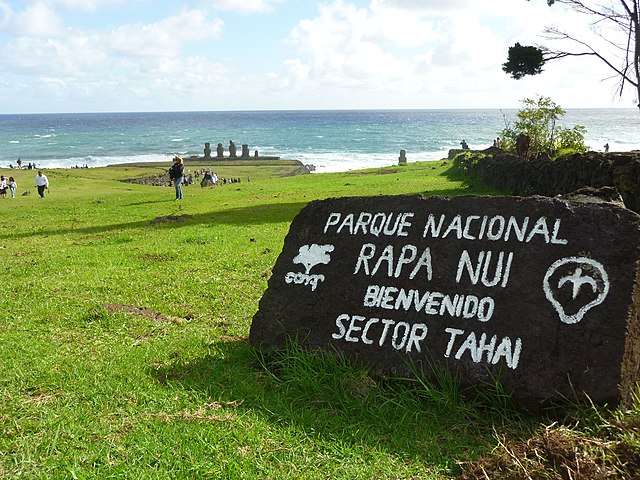Equatorial Guinea, officially the Republic of Equatorial Guinea, is a country on the west coast of Central Africa, with an area of 28,000 square kilometres (11,000 sq mi). Formerly the colony of Spanish Guinea, its post-independence name refers to its location near both the Equator and in the African region of Guinea. As of 2021, the country had a population of 1,468,777, over 85% of whom are members of the Fang people, the country's dominant ethnic group. The Bubi people, indigenous to Bioko, are the second largest group at approximately 6.5% of the population.
Corisco in 1910
Inaugural flight with Iberia from Madrid to Bata, 1941
Guardia Civil and Marine Infantry in Spanish Guinea in 1964.
Signing of the independence of Equatorial Guinea by the Spanish minister Manuel Fraga together with the new Equatorial Guinean president Macías Nguema on 12 October 1968
Spanish or Castilian (castellano) is a Romance language of the Indo-European language family that evolved from the Vulgar Latin spoken on the Iberian Peninsula of Europe. Today, it is a global language with about 500 million native speakers, mainly in the Americas and Spain, and about 600 million when including second language speakers. Spanish is the official language of 20 countries, as well as one of the six official languages of the United Nations. Spanish is the world's second-most spoken native language after Mandarin Chinese; the world's fourth-most spoken language overall after English, Mandarin Chinese, and Hindustani (Hindi-Urdu); and the world's most widely spoken Romance language. The country with the largest population of native speakers is Mexico.
Antonio de Nebrija, author of Gramática de la lengua castellana, the first grammar of a modern European language
Spanish language signage in Malabo, capital city of Equatorial Guinea
Spanish language newspaper in the Philippines from 1892
Announcement in Spanish on Easter Island, welcoming visitors to Rapa Nui National Park








